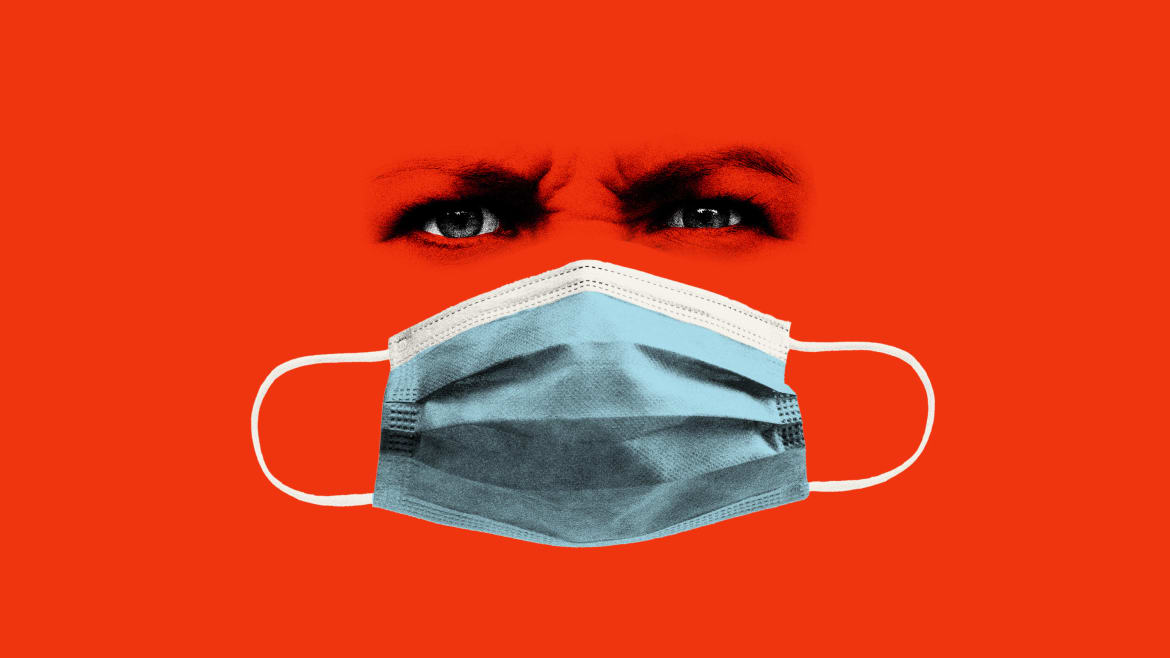 Photo Illustration by Elizabeth Brockway/The Daily Beast/Getty
Photo Illustration by Elizabeth Brockway/The Daily Beast/GettyIn March 2020, as lockdowns gripped the world and the COVID-19 pandemic was officially in full swing, Lisa Brosseau, a national expert on respiratory protection and infectious diseases at the Center for Infectious Disease Research and Policy, was pleading with the CDC to “follow the science.” Contrary to the information from the CDC and WHO at the time, Brosseau—and other experts who would soon follow—thought the SARS-CoV-2 virus that causes COVID-19 could be transmitted via aerosols: tiny particles emitted when an infected person talks, sings, or breathes. Aerosols are, by definition, smaller than the “droplets” emitted by sneezing and coughing, and can travel further in the air than bigger droplets can. Viral transmission can occur when a non-infected person inhales these small aerosolized particles, and research would soon show aerosols are a primary means of SARS-CoV-2 transmission.
But in March 2020, when Brosseau started making a case for aerosolized transmission, the CDC and the WHO insisted that the virus was primarily transmitted through droplets and fomites (touching something an infected person touched).
This debate wasn’t simply academic or semantic; it had—and has—very real consequences for how people protect themselves and others from contracting the virus. Good ventilation is critical, as Brosseau told The Daily Beast at the time, and a fit-tested respirator like an N95 is significantly more effective at filtering small particles than a cloth face covering or surgical mask. It took the WHO a year and a half and the CDC two years to fully acknowledge the reality of aerosol transmission of SARS-CoV-2, including that well-fitting respirators approved by the National Institute of Occupational Safety and Health (NIOSH) “offer the highest level of protection.”

 1 year ago
590
1 year ago
590 
















 English (United States) ·
English (United States) ·